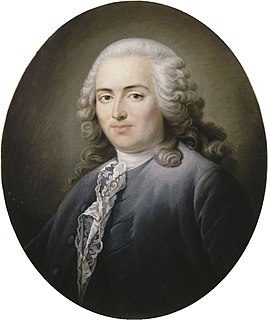A Quote by David Ricardo
It is not by the absolute quantity of produce obtained by either class, that we can correctly judge of the rate of profit, rent, and wages, but by the quantity of labour required to obtain that produce.
Related Quotes
If the land was divided among all the inhabitants of a country, so that each of them possessed precisely the quantity necessary for his support, and nothing more; it is evident that all of them being equal, no one would work for another. Neither would any of them possess wherewith to pay another for his labour, for each person having only such a quantity of land as was necessary to produce a subsistence, would consume all he should gather, and would not have any thing to give in exchange for the labour of others.
Inflation is always and everywhere a monetary phenomenon in the sense that it is and can be produced only by a more rapid increase in the quantity of money than in output... A steady rate of monetary growth at a moderate level can provide a framework under which a country can have little inflation and much growth. It will not produce perfect stability; it will not produce heaven on earth; but it can make an important contribution to a stable economic society.
I feel overawed by quantity where counting no longer makes sense. By unrepeatability within such a quantity. By creatures of nature gathered in herds, droves, species, in which each individual, while subservient to the mass, retains some distinguishing features. A crowd of people, birds, insects, or leaves is a mysterious assemblage of variants of certain prototype. A riddle of nature's abhorrence of exact repetition or inability to produce it. Just as the human hand cannot repeat its own gesture, I invoke this disturbing law, switching my own immobile herds into that rhythm.





























